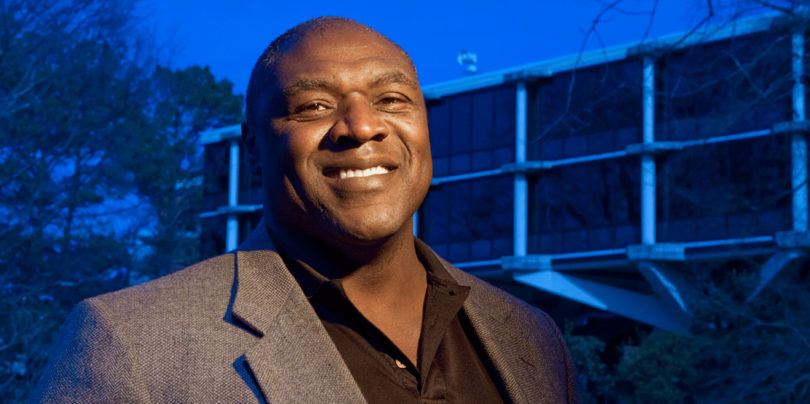Gregory H. Robinson, University of Georgia Foundation Distinguished Professor of Chemistry, has been named a Fellow of the Royal Society of Chemistry. A nonprofit organization with a heritage that spans 175 years, the Royal Society of Chemistry is the United Kingdom’s professional body for chemical scientists and the largest organization in Europe for advancing the chemical sciences.
Robinson joins his department of chemistry colleague, Graham Perdue Professor Henry “Fritz” Schaefer, who was elected in 2005 as a Fellow of the Royal Society of Chemistry.
A 2012 Humboldt Research Award from Germany’s Alexander von Humboldt Foundation and a 2014 recipient of the Southeastern Conference Faculty Achievement Award, Robinson is an internationally recognized scholar whose scientific achievements have been described as groundbreaking. Over the past 25 years, Robinson and his team have published a series of fundamental findings that have reshaped how scientists view chemical bonding in many chemical compounds.
“This is a well-deserved honor for Dr. Robinson in recognition of his creative and pioneering work in inorganic synthetic chemistry,” said Jonathan Amster, professor and head of the department of chemistry. “The number of American RSC Fellows is quite small, and so Greg has established himself as a member of an elite group. This brings honor not only to him, but to our department and the university.”
Robinson’s research concerns the synthesis, structure and stabilization of compounds containing multiple bonds between heavier main group elements, such as gallium and lead. Recently, Robinson’s research team, which includes Schaefer and research scientist Yuzhong Wang, prepared a rare silicon oxide molecule that was dubbed a precursor to “molecular sand.”
“To be named a Fellow of the Royal Society of Chemistry is a tremendous honor, and to now be associated with some of the world’s most notable chemists is equally humbling,” Robinson said. “This international honor is a testament to the gifted students and creative colleagues that have been a part of our research team over the years.”
The Royal Society of Chemistry partners with industry and academia, promotes collaboration and innovation, advises governments on policy and promotes the talent, information and ideas that lead to great advances in science.







